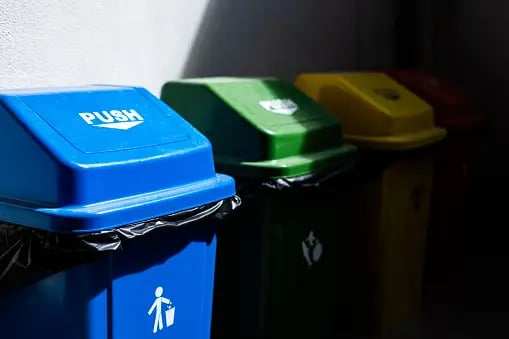B Corp’s new framework is here - and it’s not messing around.
As of April 2025, B Lab has introduced the most significant overhaul to its certification standards since the movement began. The changes reflect growing pressure for businesses to not only talk about impact but to prove it - with evidence, with plans, and with results.
One of the biggest shifts? Climate action is no longer a bonus point. It’s a baseline requirement.
Let’s break it down (especially the environmental side) and unpack what it means for your business.
What’s Changed?
The old B Corp model allowed companies to score across a flexible range of categories. As long as they hit 80 points total on the B Impact Assessment, they were good to go. But now, that approach is being phased out.
Under the new standards, all companies (regardless of industry or size) must meet minimum performance requirements in seven critical areas, known as the Impact Topics.
The one we’re most interested in?
Climate Action.
A Closer Look at the New Climate Action Requirements
Under the updated B Corp framework, climate-related accountability is no longer optional. Here’s what companies need to demonstrate:
1. Emissions Disclosure
All companies must disclose their Scope 1 and Scope 2 emissions - and Scope 3 if they are material. Considering most businesses have significant value chain emissions, this means Scope 3 is effectively required for nearly everyone.
Material Scope 3 categories include:
- Purchased goods and services
- Business travel
- Employee commuting
- Use of sold products
- Transportation and distribution (upstream and downstream)
This is a major shift. For years, many companies have stopped at Scope 1 and 2—those emissions they directly control. But under the new B Corp rules, if Scope 3 makes up a large portion of your footprint, you’re expected to account for it.
2. Science-Based Targets
It’s not enough to measure emissions - you need to act on them. Companies must commit to science-aligned reduction targets consistent with a 1.5°C warming pathway, in line with the Science Based Targets initiative (SBTi).
This includes:
- Setting near-term reduction goals
- Including Scope 3 in reduction planning (again, if material)
- Publishing transition plans with clear, achievable milestones
3. Climate Transition Plan
Companies are expected to submit a climate transition plan that outlines how they will achieve their targets, including:
- Operational changes
- Supplier engagement strategies
- Product or service redesign (if applicable)
- Timelines and ownership across the business
This isn’t just about optics - it’s about implementation. B Lab wants to see businesses embedding climate thinking into decision-making.
4. Ongoing Accountability
The new framework doesn’t stop once you’re certified. Companies must demonstrate continuous improvement and will be evaluated on their climate progress in each recertification cycle (typically every three years).
If you’re stagnating (or backsliding) expect questions.
Why It Matters
This is the strongest stance B Corp has taken on climate yet. It aligns with broader global frameworks like the CSRD, GRI, and SBTi, creating much-needed consistency across the reporting landscape.
In practical terms, this means B Corps (or aspiring ones) need to:
- Have high-quality, granular emissions data
- Proactively manage supply chain emissions
- Set and track carbon targets with precision
- Be transparent, not just internally - but publicly
So, How Can Rio Help?
At Rio, we’re already helping businesses prepare for this shift—because we built our platform with the future in mind.
Here’s what we bring to the table:
- Scope 1, 2, and 3 Emissions Tracking
Our platform simplifies emissions measurement across all scopes. We automate data collection, map emissions hotspots, and support spend-based and activity-based data models for Scope 3. In short: we make the complex manageable.
- Built-In Climate Strategy Tools
Use Rio to create, model, and track carbon reduction strategies aligned with your B Corp and SBTi goals. Whether you're targeting operational efficiency or upstream engagement, we help you scenario-plan in real time.
- Science-Based Targets & Climate Roadmapping
Set targets that align with 1.5°C pathways, create transition plans, and report on your progress—all in one place. Rio ensures your plans are not only actionable but verifiable.
- Audit-Ready Dashboards & Reports
Need to show your board, your stakeholders (or B Lab) your progress? No problem. Rio’s exportable dashboards and reporting tools are built to stand up to scrutiny.
- Expert-Led Support
You’re not on your own. With Rio our sustainability consultants are on hand to guide you through emission factors, Scope 3 prioritisation, reduction modelling, and everything else the new B Corp framework demands.
Final Thoughts
Climate change isn’t a side issue anymore - and B Lab knows it. Their new framework challenges companies to move from good intentions to verified impact, with the environment placed firmly at the heart of certification.
Whether you’re applying for the first time or preparing for recertification, you’ll need a plan, a platform, and a partner who understands the landscape.
That’s where we come in. Lets make climate compliance a competitive advantage together.








